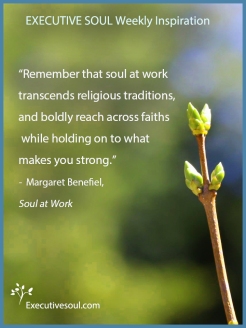
Have you broken your New Year’s resolutions yet? If so, you’re not alone. A study at the University of Scranton reported that 36% of participants had broken their New Year’s resolutions by the end of January. By the end of six months, over half had broken their resolutions.
What if we thought of our broken New Year’s resolutions not as evidence of weak willpower, but as a sign of other important commitments that need just as much attention as our resolutions need? A book that can help do just that is Robert Kegan and Lisa Laskow Lahey’s Immunity to Change: How to Overcome it and Unlock the Potential in Yourself and Your Organization.
Using your broken New Year’s resolutions to identify your competing commitments can help you get to the bottom of what isn’t working for you in your life. More importantly, identifying competing commitments can help you achieve your goals much more effectively than New Year’s resolutions can.
Here’s how it works, according to Kegan/Lahey: When you find yourself breaking a resolution, ask yourself, “In addition to this resolution, what else am I committed to?” (In my own case, my resolution to not overextend myself competes with my commitment to not miss out on something good.) Once the competing commitment is identified, you can begin to seek a win/win. Rather than having your competing commitments sabotage your resolution, you can dig deeper, identify your underlying assumptions, and take small steps to test whether those underlying assumptions are valid.
In the workplace, resolutions to change are particularly vulnerable, since many people are colluding in the status quo, and since old patterns die hard in the fast-paced, no-time-for-reflection work environment. Like individual New Year’s resolutions, organizational change efforts tend to focus on desired change without digging deeper to examine competing commitments. We’re all familiar with the term “resistance,” used to describe the forces that keep us from changing, both individually and organizationally. It’s easy to view resistance negatively, viewing it as the effort to cling to the old when it’s time to usher in the new. If instead of thinking in terms of organizational resistance to change, we can think in terms of competing commitments, we can mine rich veins of learning.
For example, Jean Quinn, the co-executive director of Sophia Housing in Dublin, Ireland, realized that a “command and control” leadership style inconsistent with the organization’s values had established itself in the organization. Because leaders had learned that style elsewhere and imported it, Quinn knew that their immunity to change would not be easy to overcome. She decided to call in an organizational consultant who would work closely with supervisors in the organization over an extended period of time to surface underlying assumptions and help people reflect on them. The organizational consultant, invited to offer leadership training in modules over six months, helped leaders in the organization identify their competing commitments, noting how leadership practices out of alignment with Sophia’s culture had crept in and how everyone had colluded in not challenging them. The supervisors worked with leaders both during the program and after, continuing with them in ongoing supervision after the six months were over. Through the integration of the training and supervision, Sophia’s leadership culture shifted, once again becoming more person-centered. Jean Quinn observed that, through surfacing assumptions and helping people talk about them openly, a culture of openness was created. The immunity to change had been overcome.
The next time you’re feeling discouraged by a broken New Year’s resolution, look deeper. You’re likely to find a competing commitment that is just as important and honorable as the “failed” commitment. If you can find a way to honor both commitments together, you may find yourself well on the road to success. What you learn from your “failure” can ultimately build a stronger foundation for moving toward your goal.
(Part of this article is taken from “Immunity to Change: Supervision, Organizational Leadership, and Transformation,” in The Soul of Supervision, Margaret Benefiel and Geraldine Holton, editors (Morehouse, 2010). Used with permission of the publisher.)















